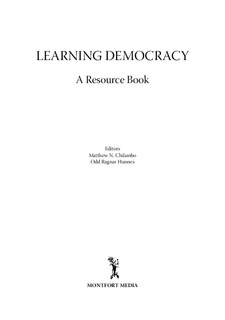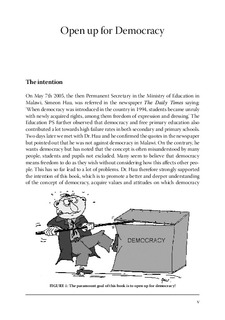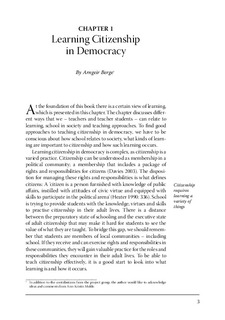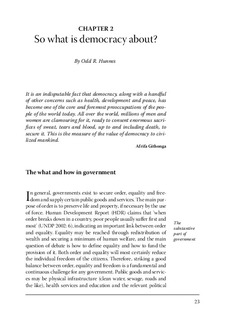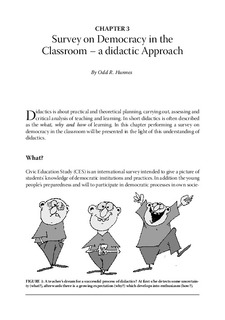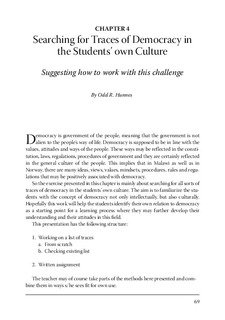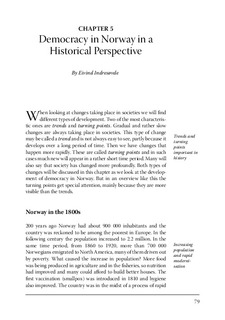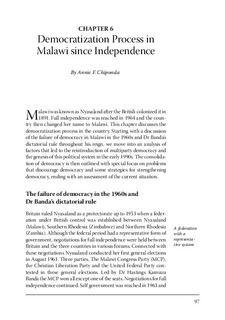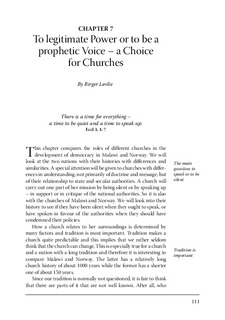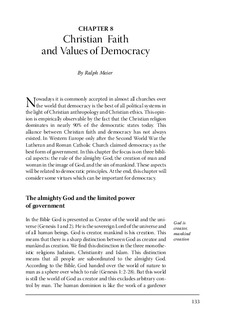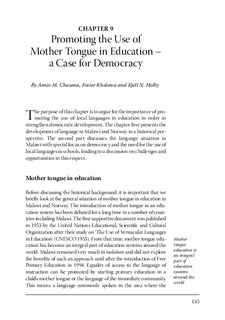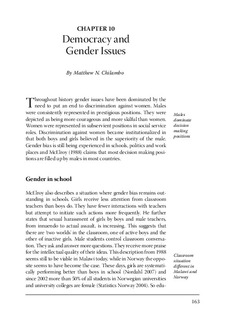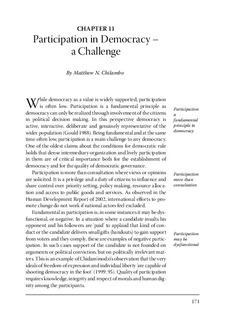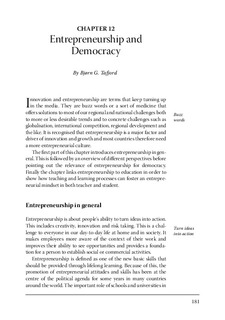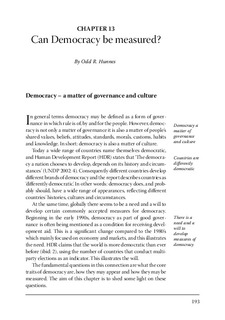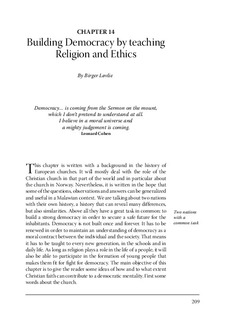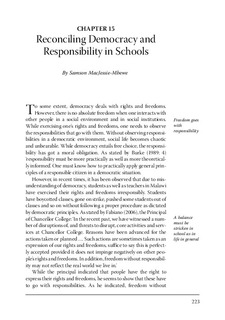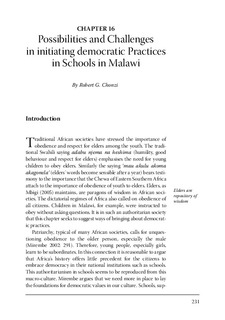| dc.description.abstract | This book is organized in five parts. The first focuses on the fundamentals in learning democracy. Here come a view of learning and school’s role in society along with a relatively short presentation of the concept of democracy. The idea is that the reading of this section will catalyze your benefit from the other chapters in the book.
The second part contains two chapters where activity based approaches to learning democracy are suggested. The first is about performing a survey on democracy in the classroom and the use of this exercise as tool both for planning and learning. The other is about inviting the students to go searching for practices and values in their own culture that may be connected with democracy somehow. If this can be done, the students will better understand what is meant by the phrase that democracy is government of the people.
The third part tells the history of democracy in Malawi and Norway where differences and similarities are pointed out. A special focus is set on the role of the Christian church in the development of democracy in both countries. This part offers ample opportunities to compare and contrast the two, and this is a much cherished approach in studies of societies.
Part four offers a variety of topics within the scope of democracy: Christian values, language, gender, participation, entrepreneurship and measuring democracy. The topics reflect to a large degree the special interests and subject areas of the participants in the project from which this book is an outcome: education, language, social sciences and theology. Acknowledging that the choice of topics in this way may seem to be a bit haphazard, we will claim that they are all both important and relevant. But different people would most probably have chosen somewhat differently.
The fifth part focuses on school, starting with a reflection on if and how religion may contribute in building democracy. Another challenge for school to face is reconciling the freedom and the responsibility that are so fundamental for a democracy to function well. The last chapter reflects on the possibilities and challenges in initiating democratic practices in schools in Malawi. | nb_NO |
